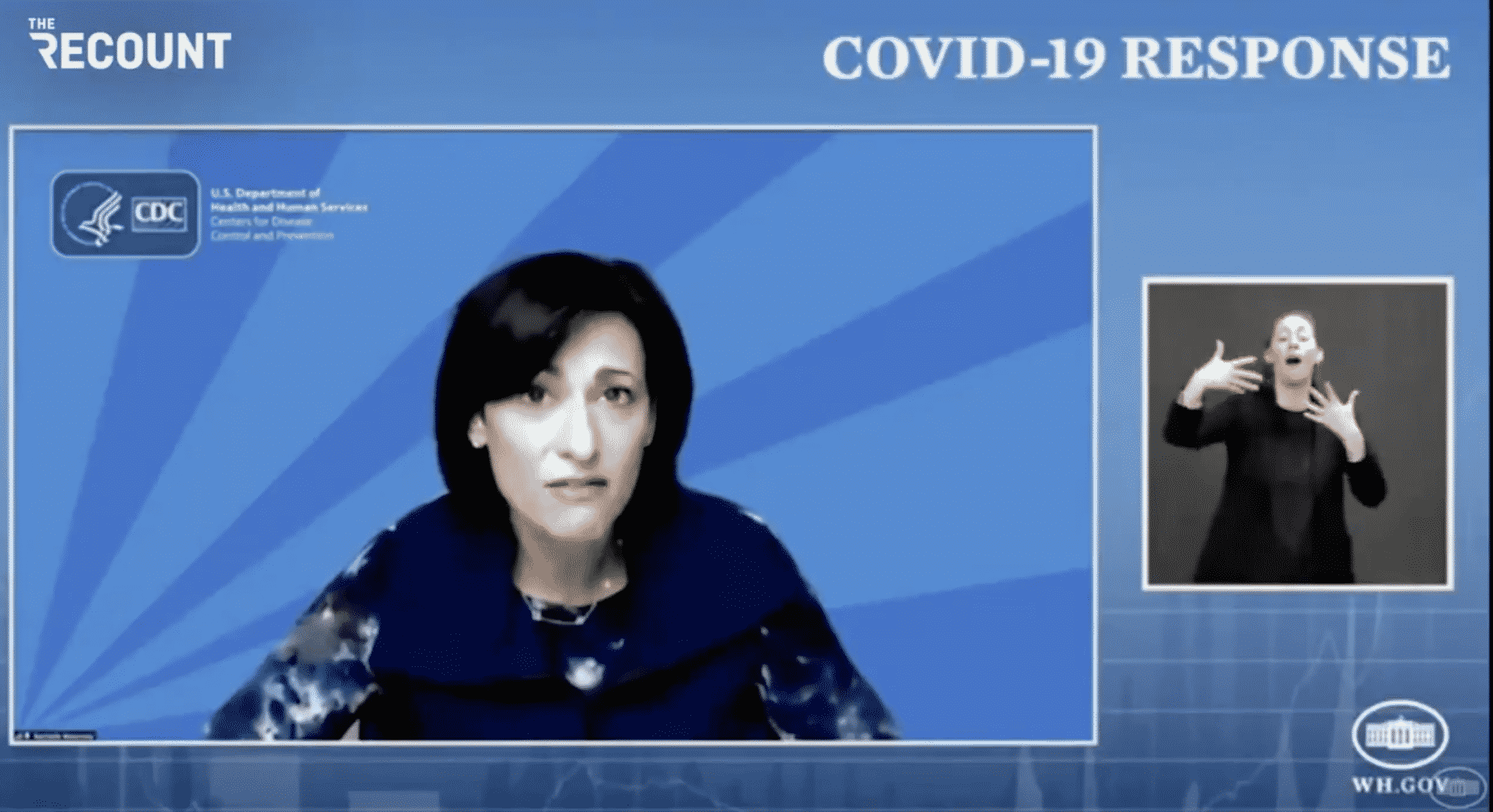As Michigan is leading the nation in the number of new COVID-19 cases per capita, the state’s Gov. Gretchen Whitmer (D) is urging officials to surge vaccines to the state.
Centers for Disease Control and Prevention (CDC) Direct Rochelle Walensky addressed the increase in cases on Monday and suggested that administering more vaccine doses will not help break the surge.
During a press briefing, Walensky said, “When you have an acute situation, an extraordinary number of cases like we have in Michigan, the answer is not necessarily to give vaccine. In fact, we know the vaccine will have a delayed response.”
“The answer to that is to really close things down, to go back to our basics, to go back to where we were last spring, last summer, and to shut things down, to flatten the curve, to decrease contact with one another, to test to the extent that we have available,” she added.
“But really, what we need to do in those situations is shut things down. I think if we tried to vaccinate our way out of what is happening in Michigan, we would be disappointed that it took so long for the vaccine to work to actually have the impact.”
Watch the video below:
CDC Director Rochelle Walensky says Michigan cannot vaccinate its way out of a surge: “The answer to that is really to close things down.” pic.twitter.com/VZwq9vqAji
— The Recount (@therecount) April 12, 2021
Michigan is seeing an average of 7,377 new cases per day, which is a 60% increase from the prior 14 days.
During an appearance on CBS’ “Face The Nation” on Sunday, Whitmer noted that Michigan is seeing a rise in cases “despite the fact that we have some of the strongest policies in place, mask mandates, capacity limits, working from home. We’ve asked our state for a two-week pause.”
“So despite all of that, we are seeing a surge because of these variants. And that’s precisely why we’re really encouraging them to think about surging vaccines into the state of Michigan,” she added.
Walensky previously said that the data shows fully vaccinated people cannot carry the virus. If the remaining portion of the U.S. population were to get the vaccine soon it would take several weeks to actually receive protection from the virus from the vaccines to curb the spread of it.
The CDC notes that it takes two weeks from the date of a second shot — or the single shot Johnson & Johnson vaccine — to receive protection from the virus.
People who get a vaccine that requires two doses are supposed to get their second shot between three and four weeks after their first dose.
The agency still recommends that vaccinated people wear masks at work or around populations who are at higher risk for the virus, socially distance, and avoid large crowds.

























 Continue with Google
Continue with Google